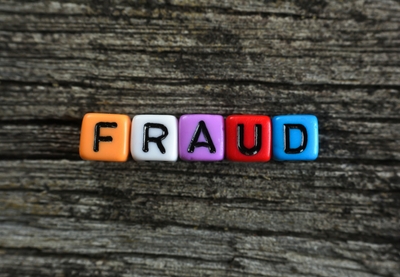Tips for Avoiding Disaster-Related Fraud
–
August 14, 2024

Disasters tend to bring out the best in people. But unfortunately, disasters also can bring out some of the worst in people too. Fly-by-night contractors and scam artists follow in the wake of disasters to prey on vulnerable victims. If you feel you are a victim of fraud, contact reportfraud.ftc.gov.
The following are some of the typical types of fraud that can take place after a disaster and what you can do to avoid them.
Price Gouging
Occurrences of price gouging following a disaster are well documented. Most businesses are community-minded and deal with their neighbors fairly. Some, however, are not. To report price gouging situations, contact the New Jersey Division of Consumer Affairs njconsumeraffairs.gov at 800-242-5846 (toll free in NJ)/973-504-6200.
Advanced Fee Loan Scam
If you need to get a loan quickly, don't be tempted by promises of "guaranteed" loans for upfront fees. Telephone solicitors may request a loan initiation fee ranging from $100 to several thousand dollars. Fraud prevention experts warn that you may never get a loan or see your money again. To learn more, visit njconsumeraffairs.gov.
Before Anyone Starts Work
The Federal Trade Commission recommends the following to avoid disaster recovery scams before any work begins:
- Contact your insurance company.
- Find out if tree and debris removal contractors need to be licensed in your area.
- Research a contractor’s reputation and work online.
- Check with the local home builders’ association.
- Get more than one estimate.
- Look for signs of a scam.
- Read the contract carefully.
Door-to-Door Solicitation and Charity Fraud
In the wake of a disaster, you may find a series of solicitors at your door seeking donations to help with recovery efforts. In most municipalities, anyone soliciting door-to-door must be registered with the local police department.
For peace of mind, donate directly to the charity of your choice. Frequently, the door-to-door solicitors are only in town long enough to take advantage of the situation.
Before you donate, remember:
- Do not give cash
- Do not give out your credit card number
- Do not be pressured into giving
- Do not give to a charity because you were sent a gift or were offered a "free" prize
- Do not be fooled by names that sound similar to legitimate charities
- Do not do business over the telephone — ask for information in the mail
- Beware of organizations offering to send a courier to pick up your donation
- Write a check payable only to the charity
- Beware of appeals that are long on emotion and short on fact
When people solicit a charitable donation, ask questions:
- What is your full name?
- What is the phone number and address that you are calling from?
- What is the full name of the charity you represent?
- What is the address of the headquarters?
- What is the telephone number?
- How long has the charity been in operation?
- What are its goals and purposes?
- How will my donation be used?
- Is my contribution tax deductible?
- How much of my donation will go directly to the charity?
Helpful Telephone Numbers
- New Jersey Division of Criminal Justice
Department of Insurance Fraud
1-877-553-7283 - Department of Homeland Security
202-282-8000 - FEMA National Registration Center
800-621-FEMA (3362) - Small Business Administration (SBA) Fraud Hotline
800-827-5722 - SBA Answer Desk
800-827-5722| answerdesk@sba.gov